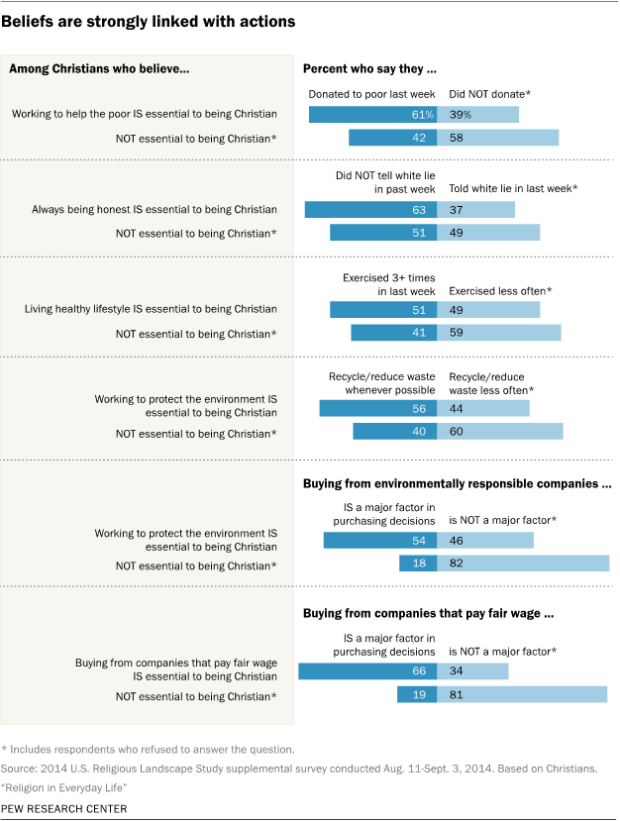Only 1 in 3 evangelicals that pray daily and worship weekly think keeping the Fourth Commandment is essential to being a Christian.
Only 2 in 5 get advice from their pastor when making a major life decision.
Building upon its massive survey of American Christians, today the Pew Research Center released a follow-up survey on religion in everyday life. The seven-year main study, meant to “fill the gap” left by the US census and the self-reporting of denominations, studied the change of religion in America from 2007 to 2014. CT covered the two-part release last year.
The study released today is a supplemental look at everyday religion in the United States, meant to examine how religious beliefs and practices go beyond prayer and church attendence to influence the day-to-day lives of Americans.
About 30 percent of Americans are highly religious (those who pray daily and attend church at least once a week), and half of them are evangelical Protestants, according to Pew. Evangelical Protestants were identified by their denomination or, if respondants didn’t know their denomination, whether they described themselves as a “born-again or evangelical Christian.”
Catholics are the next largest group of highly religious people (17%), followed by mainline Protestants (14%).
More than three-fourths of highly religious evangelicals talk to non-family members about faith at least a few times a month, compared with only half of highly religious mainline Protestants and Catholics.
Evangelicals are also much more likely to talk about religion with their immediate and extended family.
And while all three groups are far more likely to try to understand and agree to disagree when someone disagrees with them about religion, highly religious evangelicals are three times more likely (16%) to attempt to persuade them than mainline Protestants (5%) and twice as likely as Catholics (7%).
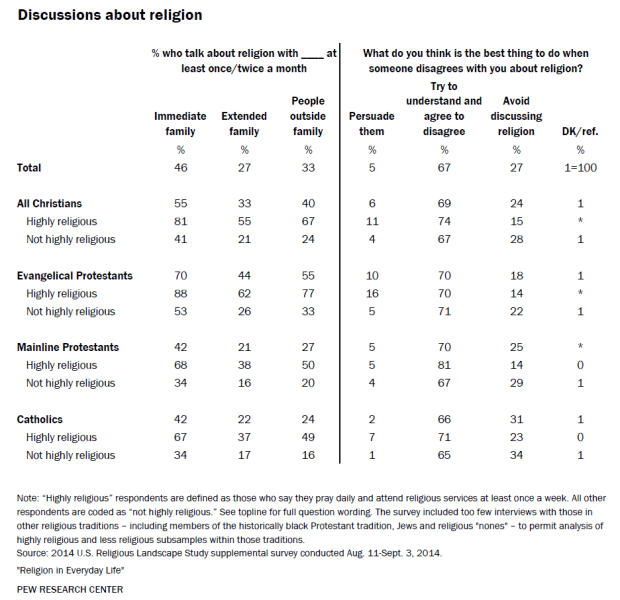
Four in five people who are not highly religious said believing in God was essential to faith. But less than half said praying was essential, while a quarter or less said reading the Bible, attending religious services, helping in the congregation, or resting on the Sabbath were essential to being a Christian.
Not surprisingly, those who practice religious activities are more likely to see them as essential to being a Christian. While almost all highly religious people agree that belief in God is essential, more evangelicals believe that praying regularly, reading the Bible, helping in the congregation, and resting on the Sabbath is crucial to faith.
Catholics are most likely to say that attending religious services is a key component of faith.
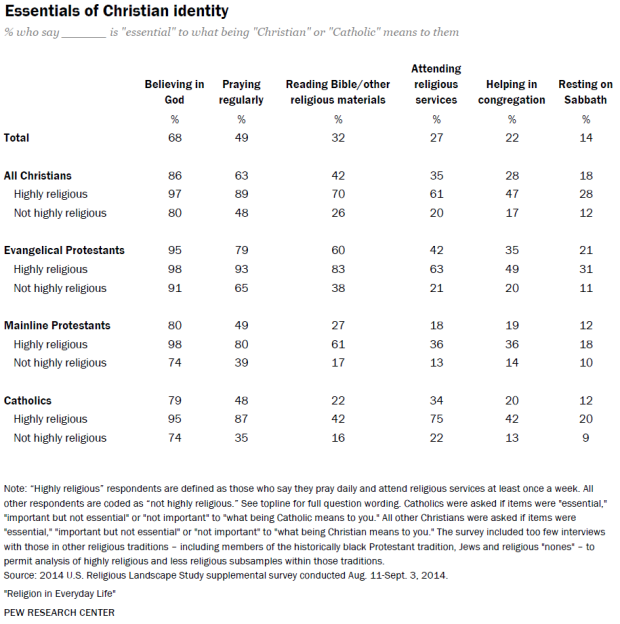
Highly religious evangelicals are also more likely to say honesty, forgiveness, controlling one’s temper, dressing modestly, and physical health are essential to Christianity.
Evangelicals were least likely to agree that working to help the poor, protecting the environment, and buying from companies that pay a fair wage are essential to being a Christian.
In each highly religious group, 4 out of 5 identified gratefulness and 5 out of 10 identified spending time with family as important components of their faith.
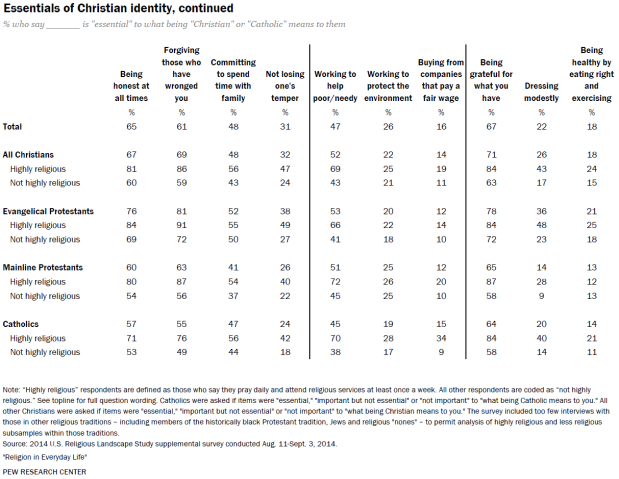
When weighing major life decisions, 7 out of 10 evangelicals and 9 out of 10 highly religious evangelicals said they prayed. In comparison, 4 out of 10 mainline Protestants and Catholics, and 8 out of 10 highly religious mainline Protestants and Catholics, did the same.
Highly religious mainline Protestants (32%) were twice as likely as highly religious evangelicals (17%) to seek advice from professionals, while highly religious evangelicals (40%) were twice as likely as highly religious mainline Protestants (21%) or highly religious Catholics (19%) to ask religious leaders for advice.
Four out of five Americans—in every category—said they relied on their own research when making a major life decision.
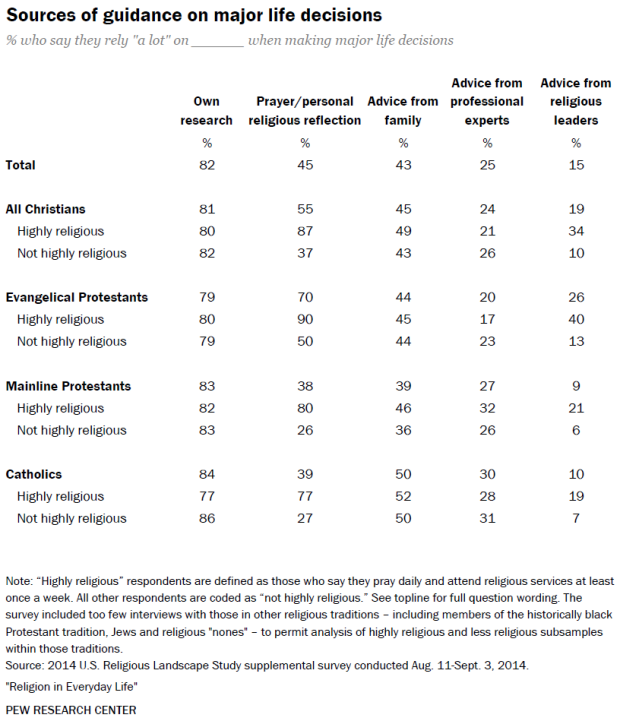
Of the highly religious groups, evangelicals are most likely to hang out with their families. About half report attending family gatherings at least once a month (49%), while a third get together with family a few times a year (33%). Mainline Protestants are the opposite: half see their family a few times a year (47%), while a third see them at least once a month (35%). (Catholics mirror evangelicals.)
Overall, the highly religious are more likely to hang out with their families at least a few times a year (83%) those who are not highly religious (68%).
Beyond that, the everyday lives of the highly religious look a lot alike. More than 80 percent are very happy or pretty happy with their lives overall; more than 90 percent are satisfied with their family life.
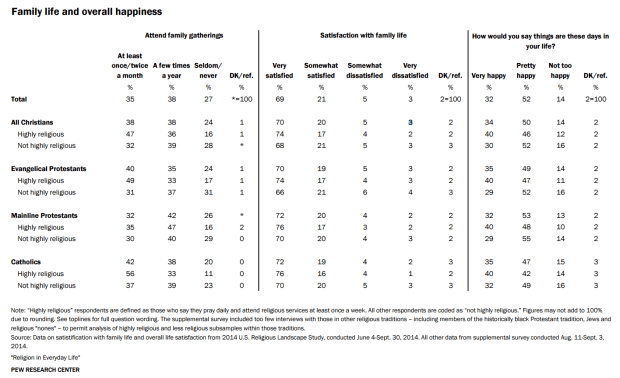
About two-thirds exercise at least once a week. Two out of five meditate to cope with stress. Three out of five ate too much last week. Four out of five are at least somewhat satisfied with their overall health.
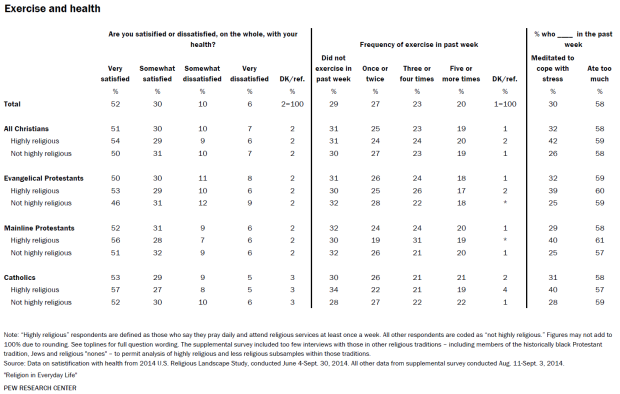
Highly religious mainline Protestants were more likely to volunteer in the past week (49%) than evangelicals (45%) or Catholics (40%). About half of all volunteers did their work through the church.
Catholics were more likely to donate money, time, or goods to the poor and needy (74%) than evangelicals (65%) or mainline Protestants (61%).
Christians who are not highly religious were less likely to volunteer (27%) in the past week or to donate to the needy (44%).
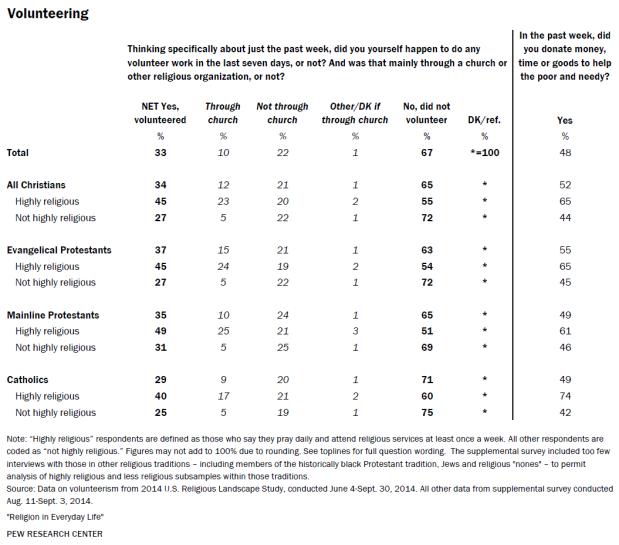
Perhaps as a result of the practice of confession, highly religious Catholics were more likely to admit to telling a white lie in the past week (44%, compared to 36% of evangelicals and 33% of mainline Protestants), as well as to admit they had lost their temper (47%, compared to 41% of evangelicals and 34% of mainline Protestants).
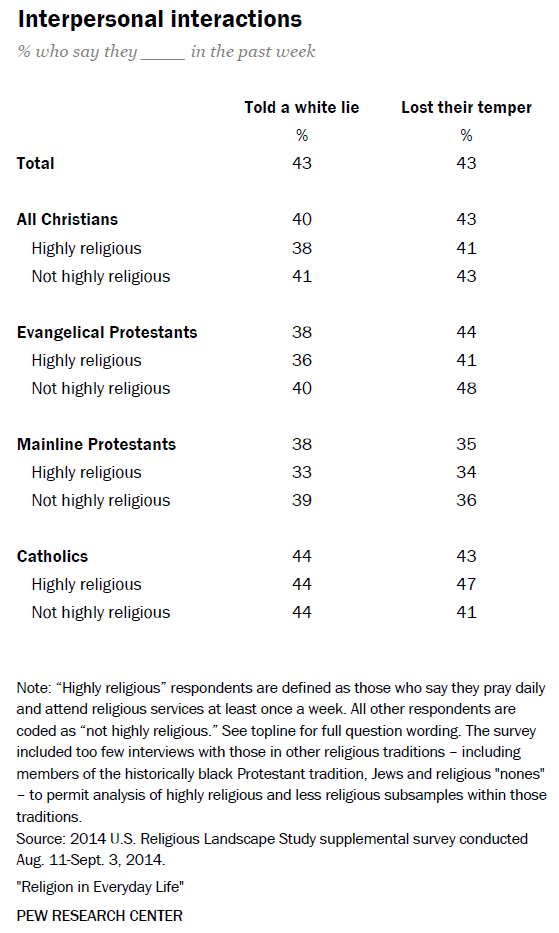
Both Catholics (92%) and evangelicals (90%) are more likely to make everyday purchases based on the quality of the product than mainline Protestants (85%), while evangelicals and mainline Protestants (78%) are more likely than Catholics (73%) to consider how much the product costs.Highly religious Catholics are also more likely to recycle: 86 percent do at least most of the time, compared to 73 percent of evangelicals and mainline Protestants.
Four in 10 Catholics say how environmentally responsible a company is—and whether it pays employees a fair wage—is a major factor when making purchases, compared to 3 in 10 mainline Protestants and 2 in 10 evangelicals.
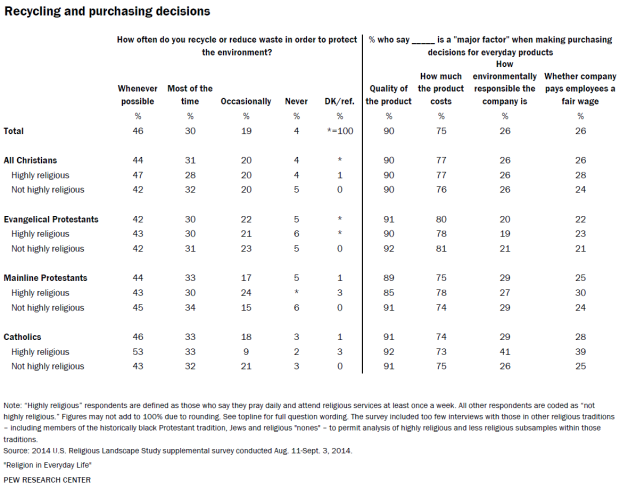
Among all highly religious Christians, Pew did find a connection between beliefs and behavior.
